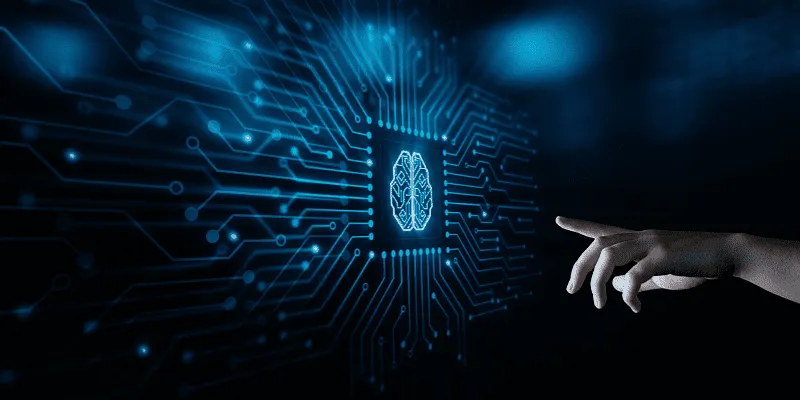What lies beyond 2024 for organisational learning and development
There is a discernible shift towards personalised, technology-driven, and outcome-oriented methodologies that are meticulously designed to not only bolster employee capabilities but also to meticulously align organisational objectives with strategic imperatives.
In the aftermath of the unprecedented COVID-19 pandemic, organisations across India find themselves at a critical juncture, compelled to reevaluate their strategies for learning and development. The challenges posed by the pandemic have prompted a deep introspection into traditional approaches to employee growth and skill enhancement.
As we peer into the future beyond the year 2024, it becomes increasingly apparent that the landscape of organisational learning and development in India is undergoing a profound and dynamic transformation.
This evolution is marked by a discernible shift towards personalised, technology-driven, and outcome-oriented methodologies that are meticulously designed to not only bolster employee capabilities but also meticulously align organisational objectives with strategic imperatives. This paradigm shift reflects a broader commitment towards fostering continuous learning cultures within organisations, where adaptability, innovation, and resilience reign supreme in the face of an ever-evolving business landscape.
Organisations have come to recognise the pivotal role that learning and development play in preparing for the future. It’s no longer sufficient to simply impart knowledge within the confines of a classroom; rather, organisations are increasingly focused on facilitating learning experiences that extend beyond traditional boundaries.
By ensuring that learning permeates into real-world scenarios, organisations empower participants to apply newfound knowledge directly in their work environments. This approach not only fosters agility and adaptability but also enables employees to navigate evolving challenges and drive innovation, ultimately positioning organisations for long-term success in a dynamic environment.
Personalised learning
Personalised learning journeys have emerged as a cornerstone of organisational learning and development strategies. This hyper-customised approach is designed to cater to the unique needs and competencies of individual employees, ensuring that learning continuity and sustainability extend beyond traditional classroom sessions. Leveraging adaptive learning methods such as asynchronous learning, organisations create an environment conducive to individualised growth and development.
Various learning approaches, including peer-to-peer learning, interactions with industry experts, immersive experiences like escape rooms, and mentoring of action learning projects, contribute to a holistic learning experience. Through comprehensive personality and competency assessments, organisations tailor individual development plans that address specific learning needs, further enhancing participants’ skill-sets and driving meaningful learning outcomes.
Outcome-oriented learning has gained traction as a strategic approach to align learning initiatives with organisational goals. By integrating learning into the fabric of organisational strategy, companies bridge the gap between educational efforts and strategic execution. This interconnected approach ensures that learning initiatives directly contribute to achieving organisational objectives, driving tangible results and fostering a culture of continuous improvement.
The culture of impact assessment is becoming increasingly prevalent, particularly in senior leadership training programmes lasting between 6 and 12 months. Evaluating the effectiveness and tangible outcomes of such programmes is crucial for justifying investments and driving strategic decision-making. By assessing the impact of leadership training initiatives on key business metrics and objectives, organisations gain valuable insights into the return on investment and refine their leadership development strategies accordingly.
Experiential learning methodologies like case studies and simulations are also gaining prominence. Customised case studies and computer-based simulations tailored to the specific challenges and culture of each organisation facilitate hands-on learning experiences. By aligning content with the organisation’s context, these initiatives drive meaningful learning outcomes and organisational success.

Various learning approaches, including peer-to-peer learning, interactions with industry experts, immersive experiences like escape rooms, and mentoring of action learning projects, contribute to a holistic learning experience.
Customised technology platforms are serving as comprehensive one-stop portals for learning and development. These platforms offer personalised learning journeys tailored to individual learner needs, driving engagement, motivation, and impactful learning outcomes. By leveraging technology, organisations create hyper-personalised learning experiences that cater to the diverse needs of employees.
For frontline junior and middle management participants, customised asynchronous learning experiences are prioritised. These initiatives combine live webinars and sessions for real-time query resolution with self-paced learning through case studies and evaluations. This blended approach accommodates diverse learning preferences, fosters autonomy, and facilitates collaborative knowledge-sharing.
Technology-driven approach
Machine learning-based approaches are integrated for continuous evaluation and predictive analysis. By analysing employee learning activities and performance metrics, organisations gain insights into the effectiveness of learning initiatives and predict their impact on workplace performance. Personalised learning experiences are then tailored based on real-time data, driving optimal learning outcomes.
As organisations navigate the intricate challenges presented by the post-pandemic world, it becomes increasingly evident that the trajectory of learning and development is intricately intertwined with the strategic imperatives of embracing personalisation, leveraging technology, and integrating data-driven decision-making. The future of organisational learning and development in India hinges upon a holistic approach that is characterised by a multifaceted embrace of these key pillars.
By placing a paramount emphasis on personalisation, organisations can cater to the diverse learning needs and aspirations of their workforce, thereby fostering a culture of inclusivity and individualised growth. Simultaneously, the strategic adoption of cutting-edge technologies catalyses transformative learning experiences, transcending traditional boundaries and facilitating immersive and interactive learning journeys that resonate with the digital-native workforce of today.

Furthermore, the integration of data-driven decision-making processes enables organisations to glean invaluable insights into the efficacy and impact of their learning initiatives, facilitating informed and agile responses to emerging trends and evolving business needs. Through a concerted effort to align learning initiatives with overarching organisational goals, Indian organisations can cultivate a culture of continuous learning that permeates every facet of their operations.
This steadfast commitment to fostering a learning-centric culture empowers employees to navigate the complexities of a dynamic marketplace with confidence and agility, thereby driving sustained success and securing a competitive advantage in an extremely volatile atmosphere where change is the only constant.
Anyone who stops learning is old, whether at twenty or eighty. Anyone who keeps learning stays young.
- Henry Ford
The author is Managing Director of Catallyst Executive Education Institute, an outcome-driven leadership institute.
Edited by Swetha Kannan
(Disclaimer: The views and opinions expressed in this article are those of the author and do not necessarily reflect the views of YourStory.)







